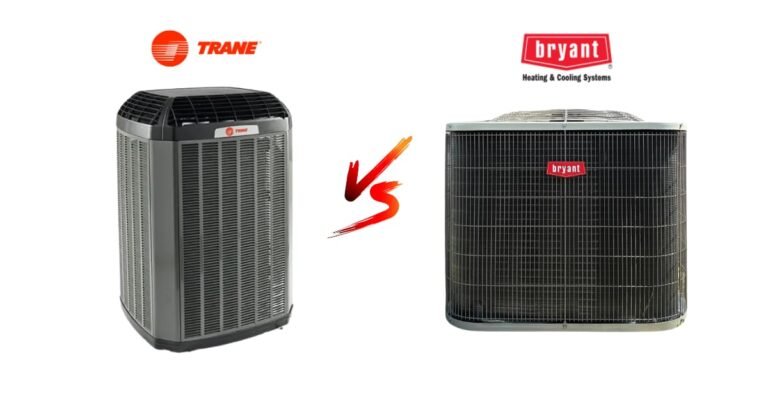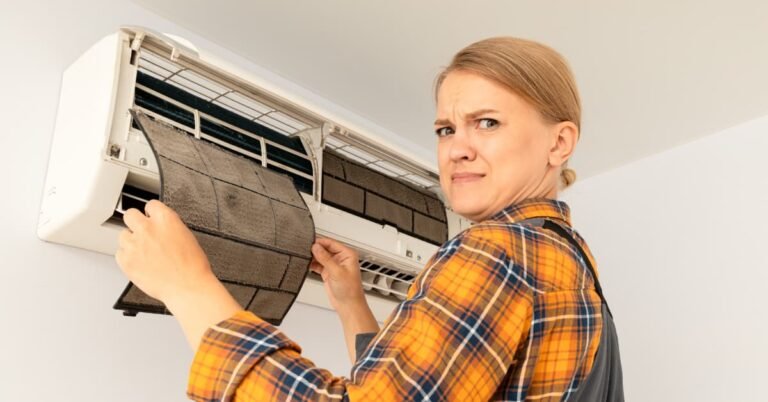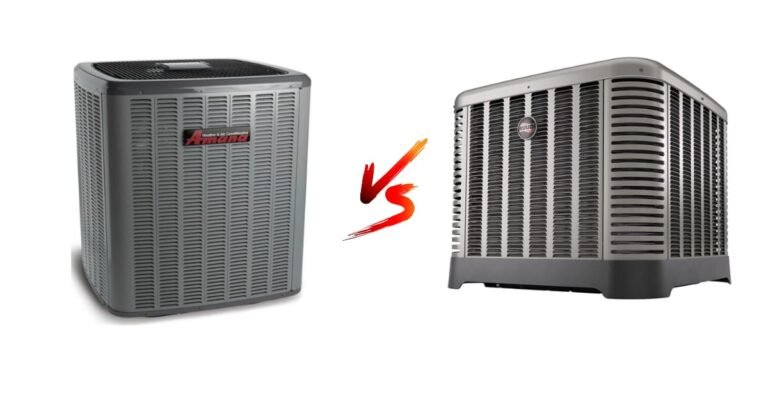What Uses More Electricity Air Conditioner Or Heater?
When it comes to energy consumption, the comparison between air conditioners and heaters reveals that air conditioners tend to use more electricity. Transitioning between warm and cool climates, these appliances play a vital role in maintaining indoor comfort.
Air conditioners function by removing heat and moisture from the air, requiring significant energy to power compressors and fans during the cooling process. On the other hand, heaters generate heat using electricity or fuel but generally consume less power than air conditioners.
By evaluating and addressing these factors, it is possible to make informed decisions, adopt energy-efficient practices, and mitigate the energy impact of air conditioning and heating systems.

What Uses More Electricity Air Conditioner Or Heater?
Air conditioning and heating are two essential systems in our homes. But when it comes to electricity usage, the air conditioner tends to consume more power than the heater. This is primarily because of the way these systems operate.
Air conditioners work by removing heat and moisture from the air, and cooling it down to maintain a comfortable indoor temperature. They use compressors to circulate refrigerant within the unit, which requires a significant amount of electricity. The cooling process involves transferring heat from inside the space to the outdoors, which requires energy to power the compressor and the fans that circulate the air.
On the other hand, heaters primarily use either electricity or fuel to generate heat. Electric heaters convert electrical energy into heat energy using a heating element. Although they do consume electricity, their power consumption is generally lower compared to air conditioners. Fuel-based heaters, such as gas or oil furnaces, require combustion to generate heat, but they don’t rely on electricity as their primary energy source.
While both air conditioners and heaters contribute to our overall energy usage, air conditioners’ higher energy consumption can be attributed to their more complex cooling process and the greater demand for cooling in warm climates. However, it’s important to note that individual system efficiency, insulation, and usage patterns also play a significant role in determining the overall energy consumption.
Factors Influencing To Choose Air Conditioners or Heaters
1. Climate
The climate plays a crucial role in determining whether one would opt for an air conditioner or a heater. In hot climates, air conditioners are preferred to cool down indoor spaces, while in colder regions, heaters are essential for maintaining warmth during chilly winters. Transitioning between seasons may also influence the choice between the two.
2. Energy Efficiency
Energy efficiency is a significant factor to consider when selecting between air conditioners and heaters. High-efficiency systems consume less electricity or fuel, reducing overall energy costs and environmental impact. Energy labels, such as the Energy Star rating, provide useful information to help users make informed decisions and choose energy-efficient models.
3. Indoor Air Quality
Air conditioners have the advantage of not only cooling the air but also improving indoor air quality by filtering out dust, allergens, and pollutants. This can be especially beneficial for individuals with respiratory conditions or allergies. On the other hand, heaters do not directly impact air quality unless combined with air purification systems.
4. Installation and Infrastructure
The availability of proper infrastructure, such as ductwork or electrical wiring, can influence the choice between air conditioners and heaters. Air conditioning systems often require ducts for proper airflow, making installation more complex and costly. In contrast, heaters may have more flexible installation options, including standalone units or simple electrical connections.
5. Cost Considerations
Cost is a significant factor when deciding on air conditioners or heaters. The upfront cost of purchasing and installing a system, as well as ongoing maintenance and repair expenses, should be taken into account. Additionally, factors like seasonal energy costs, fuel prices, and utility rates can impact the long-term cost of operating the chosen system.
Several factors come into play when deciding between air conditioners and heaters. Climate, energy efficiency, indoor air quality, installation requirements, and overall cost considerations shape the decision-making process.
By carefully evaluating these factors, individuals can select the most suitable and efficient cooling or heating solution for their specific needs and preferences.
Energy-Saving Tips and Strategies
1. Set Optimal Temperature
Adjusting the thermostat to an optimal temperature is crucial for energy efficiency. For air conditioners, setting the temperature a few degrees higher can significantly reduce energy consumption. Similarly, lowering the thermostat for heaters can help conserve energy. Transitioning to programmable or smart thermostats can provide more precise temperature control, allowing for energy-saving schedules.
2. Efficient Use of Thermostat Settings
Utilize thermostat settings to maximize energy savings. When using the air conditioner, consider using “energy-saving mode” or “auto mode” settings that adjust cooling based on room occupancy. For heaters, use zoning or room-specific thermostats to only heat occupied spaces, reducing overall energy usage.
3. Proper Insulation
Insulating your home effectively prevents unwanted heat transfer. Seal air leaks around windows, doors, and ducts to maintain a stable indoor temperature. Proper insulation keeps cooled or heated air indoors, reducing the workload on the AC or heater and minimizing energy waste.
4. Regular Maintenance
Regular maintenance of AC and heating systems is vital for optimal performance and energy efficiency. Clean or replace air filters monthly to ensure unrestricted airflow and reduce strain on the system. Schedule professional maintenance annually to ensure proper functioning and identify any issues that may impact energy efficiency.
5. Utilize Natural Ventilation
Take advantage of natural ventilation to reduce reliance on AC or heaters. Open windows during cooler times of the day to allow fresh air in and circulate through the space. Utilize window coverings, such as blinds or curtains, to block sunlight during hot periods or retain warmth during colder months.
6. Limit Heat Sources
Minimize the use of appliances that generate heat, such as ovens, stoves, and dryers, during peak cooling hours. These heat-emitting sources can increase the workload on the AC and impact energy efficiency. Consider using alternative cooking methods or delaying tasks that generate heat until cooler periods of the day.
Conclusion
Air conditioners generally consume more electricity compared to heaters. This is primarily due to the complex cooling process involved in air conditioning, which requires the use of compressors and fans to remove heat from indoor spaces.
Although heaters also consume electricity or fuel to generate heat, their power consumption is typically lower. Factors such as climate, system efficiency, and individual usage patterns further contribute to the disparity in energy consumption.






